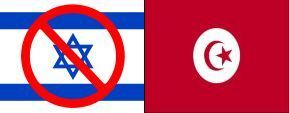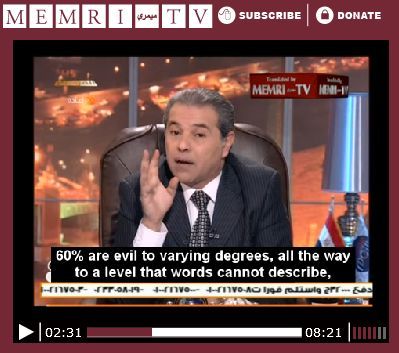 Everything you need to know about today’s media coverage of Israel and the Mideast.
Everything you need to know about today’s media coverage of Israel and the Mideast.
Another mysterious blast in Iran, the PA’s lowers expectations on May 4 elections, and Tunisia’s draft constitution condemns Zionism.
Iranian Atomic Urgency
• Reports of a big explosion in Isfahan. There’s not much known other than what the Iranian horse’s mouth has to say, as quoted in Haaretz/Reuters:
Speaking to an Iranian news website, the government of Isfahan said that the explosion occurred as a result of a military drill, denying reports that the blast was somehow related to the nearby nuclear facility.
“There is no such thing, the blast was entirely from the military maneuver,” the Iranian official said.
• Karl Vick of Time conjures a connection between Isfahan’s Big Bang to Israel and today’s rocket fire from Lebanon. Tying together Isfahan, the Mossad, and Hezbollah retaliating as Iran‘s proxy makes for sexy, speculative, blogging. But a less attractive Al-Qaida affiliate, the Abdullah Azzam Brigades, claimed responsibility for the four rockets that struck the western Galilee.
• A mob stormed the British embassy in Tehran. The Washington Post had better coverage than anything I saw in the UK papers.
• Haaretz picks up on German reports that North Korea is providing Iran (and Syria) prohibited nuclear technology.
• Woulda, coulda, shoulda: The Daily Beast‘s Dan Ephron interviews Ariel Sharon’s son, who says dad would’ve kept Israel safe from Iran.
Peace Process
• Get a load of how strong this Pittsburgh Post-Gazette staff-ed opposes Israel withholding tax transfers to the PA:
If the U.S. government is serious about wanting Israel to stop obstructing the Palestinians’ efforts to achieve unity among themselves, clearing the way to direct Israeli-Palestinian talks, it could easily resolve the problem of the withheld funds. America grants Israel $3 billion per year in aid. It could pay the Palestinians their missing $100 million per month, subtracting it from the U.S. aid to Israel, until the Israeli fund blockade stops. That way both sides would understand clearly how much importance America attaches to talks between them and to Middle East peace.

• Yesterday, I predicted Palestinian elections — scheduled for May 4 — would postponed or cancelled by the end of February. I was too generous. According to the NY Times, Palestinian leaders are already lowering expectations:
Statements by other Palestinian officials made clear, however, that the May 4 date was more theoretical than real because the two sides have to agree first on a government of technocrats to hold the elections, and those negotiations remain stuck.
“We have a long way to go,” Saeb Erekat, the chief Palestinian negotiator, said by telephone.
• Dore Gold warns that the Palestinians are disingenuously trying to internationalize Jerusalem (corpus separatum) by resurrecting the UN’s 1947 Partition Plan.
It is important to recall that U.N. General Assembly resolutions are only recommendations and do not bind member states under international law. Moreover, the Arab states had rejected Resolution 181 in its entirety, especially its call for establishing a Jewish state. Ben-Gurion understood the moral importance of Resolution 181 because of its recognition of the right of the Jewish people to a state. But he also recalled the failure of the U.N. to stop the aggression of the Arab states in 1948. Moreover, it was not the U.N. that legally created the Jewish state with Resolution 181, but rather Israel’s own declaration of independence in 1948 a year later.
Arab Spring

• A draft of Tunisia’s new constitution specifically condemns Zionism and rules out friendly ties with Israel. Israel HaYom notes two reasons Jerusalem is concerned:
Israeli officials are concerned that government-sponsored hatred of Israel in Tunisia will spread to other Middle East countries, such as Egypt, potentially destabilizing the entire region. The officials noted that Tunisia is considered a moderate Arab country and has maintained friendly relations with Israel since the Oslo Accords were signed in 1993.
A senior official said that if Tunisia’s new constitution is ratified with the anti-Israel clause intact, it could endanger the Jews living in the country.
• Memri flags Egyptian presidential candidate Tawfik Okasha saying that only 60 percent of the Jews are evil. The significance?
It means you can co-exist normally with approximately 40 percent of the Jews.
• Jeffrey Goldberg and Abby Schachter weigh in on Arab Spring anti-Semitism.
• A UN Human Rights Council report slammed Syria’s “gross human rights violations.” The full report‘s in PDF. Mark Leon Goldberg summarizes the “really nightmarish descriptions of human rights abuses” while the WSJ focused on the deaths of 250 children.
• It’s time to demand better quality propaganda. Syria ‘recycles’ Facebook footage from 2008.
• Worth reading: Syrians Die While the World Dithers
• Russia’s sending a flotilla of ships to Syria next year, including the Admiral Kuznetsov, the navy’s only aircraft carrier. AFP picks up on Moscow’s denial that the visit is related to the Syrian civil war, but the Kuznetsov’s presence would complicate the enforcement of a no-fly zone, which the Russians oppose.

Rest O’ the Roundup
• The IDF apologized to a pregnant NY Times photographer who was made to go through an X-ray three times and strip searched at a Gaza checkpoint. Lynsey Addario even phoned the crossing ahead of time and was told there would be no problem. AP picked up on the story.
Addario’s media credentials didn’t spare her any humiliation. It’s a matter of time before there’s some real blowback from the foreign press corps.
 • Foreign Policy came up with a list of its Top 100 Global Thinkers.
• Foreign Policy came up with a list of its Top 100 Global Thinkers.
- Coming in at #28 were Mahmoud Abbas and Salam Fayyad “for forging a path between violence and surrender.”
- Meir Dagan was ranked at #63, “for being the last man in Israel to stand up to Benjamin Netanyahu.”
- Mustafa Barghouti also made the list at #84, “for believing in different politics for Palestine.”
Arab Spring revolutionaries made up the top 13. Where have you gone, Natan Sharansky?
• Why did secret Israel-Turkey negotiations after the Mavi Marmara fail to patch up differences? See Claire Berlinski‘s behind the scenes look and links and judge for yourself.
(Image of dollars via Wikimedia Commons/selbstfotografiert)


